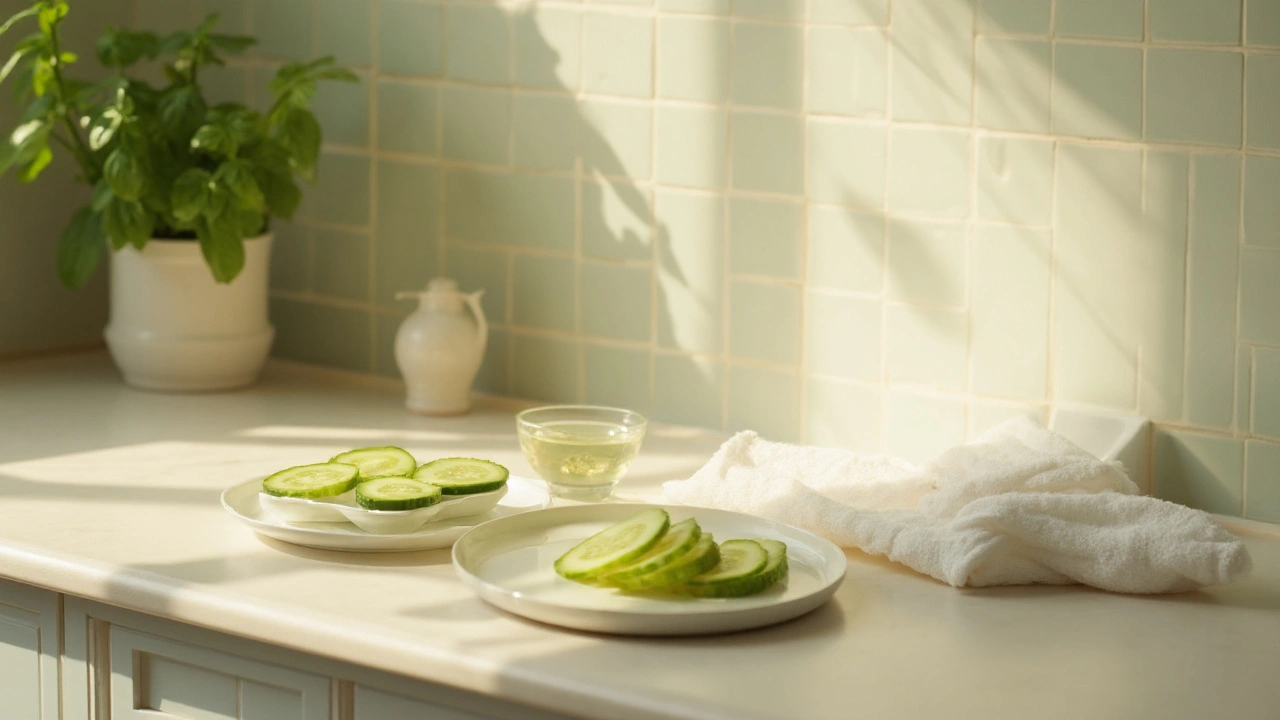How to Reduce Eye Swelling Quickly and Safely
If your eyes look puffy or swollen, you probably want relief fast. Swelling can happen after a late night, a salty meal, allergies, or a minor injury. The good news is many everyday items can calm the puffiness without a prescription. Below are the most practical steps you can take right now.
Why Your Eyes Swell
First, understand the cause. Blood vessels under the thin skin around the eye are very sensitive. When they expand, fluid leaks into the surrounding tissue and makes the area look puffy. Common triggers include:
- Salt overload – too much sodium makes your body hold water.
- Allergies – pollen, pet dander, or cosmetics can irritate the eyes.
- Sleep loss – lack of rest slows down fluid drainage.
- Minor trauma – rubbing or a small bruise can cause localized swelling.
Identifying the trigger helps you pick the right remedy. If the swelling is from an infection or severe injury, see a doctor instead of DIY fixes.
Quick Ways to Reduce Swelling
Cold compress: Wrap a few ice cubes in a clean cloth or use a chilled spoon. Press gently on the closed eyelid for 5‑10 minutes. The cold narrows blood vessels and drains fluid.
Cucumber or chilled tea bags: Slice a fresh cucumber or soak two tea bags (green or black) in cold water, then chill. Place them over the eyes for 10‑15 minutes. The cool temperature plus the antioxidants help shrink the puffiness.
Hydration: Drink at least eight glasses of water a day. When your body is well‑hydrated, it won’t retain excess fluid around the eyes.
Reduce salt: Cut back on processed foods, chips, and sauces. Even small cuts in sodium can make a noticeable difference in how much your eyes puff up the next morning.
Gentle massage: Using your ring finger, lightly tap from the inner corner of the eye outward toward the temples. This encourages lymphatic drainage.
Aloe vera gel: Apply a tiny amount of pure aloe gel around the eye (avoid getting it in the eye itself). Aloe’s anti‑inflammatory properties can calm mild irritation.
Eye drops: If allergies are the cause, over‑the‑counter antihistamine eye drops can reduce redness and swelling. Follow the label directions.
Pick one or combine a few of these tricks. Most people see improvement within 30 minutes to an hour.
When to call a professional: If swelling comes with severe pain, vision changes, drainage, or lasts more than 48 hours, book an appointment. Those signs may mean infection or a deeper issue that needs medical care.
Keeping a simple routine—cold compresses, staying hydrated, and watching your salt intake—will keep eye puffiness at bay. Try these tips next time you wake up with swollen eyes, and you’ll likely see a clear difference without any hassle.

Discover safe, effective home remedies to calm eye inflammation naturally. Learn step‑by‑step tips, compare common treatments, and avoid common pitfalls for clear, comfortable eyes.
- Read More
